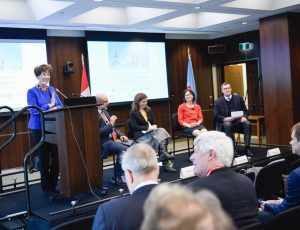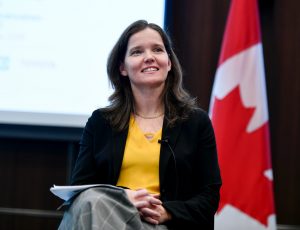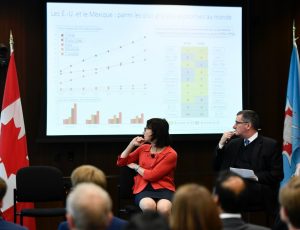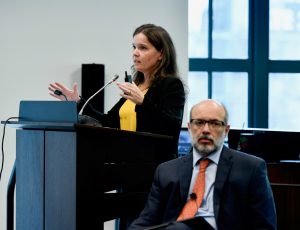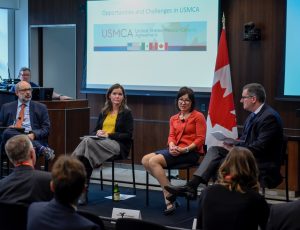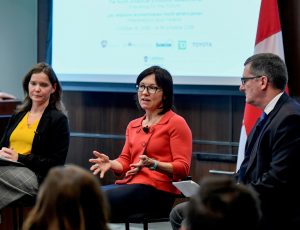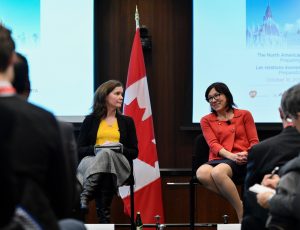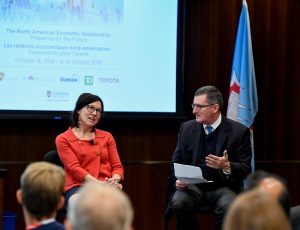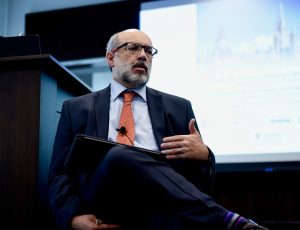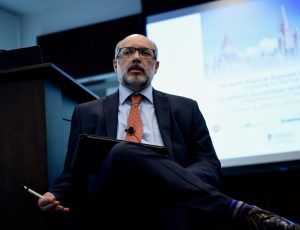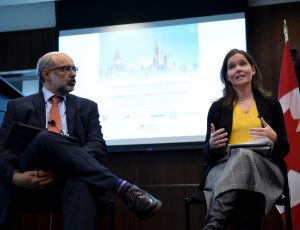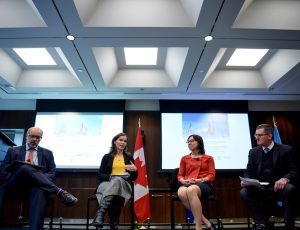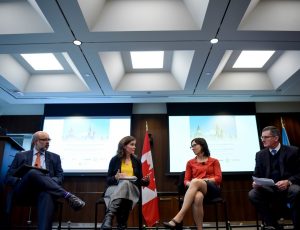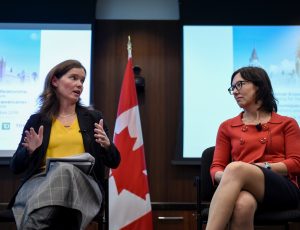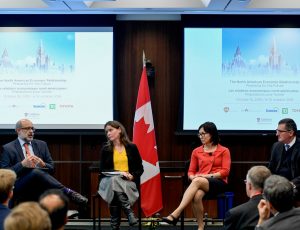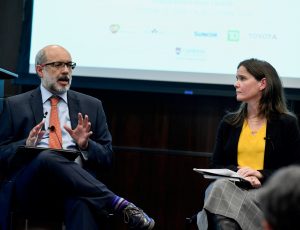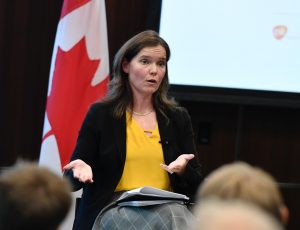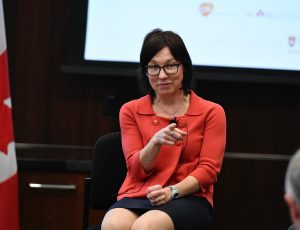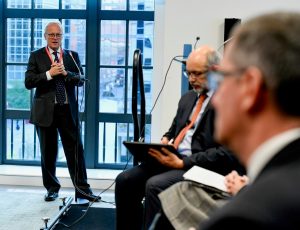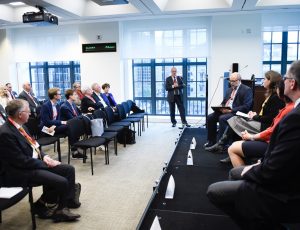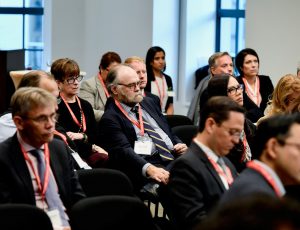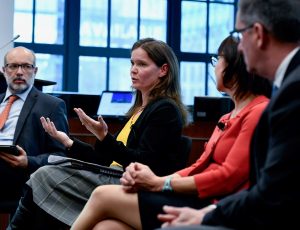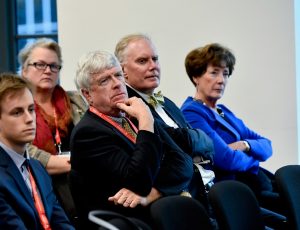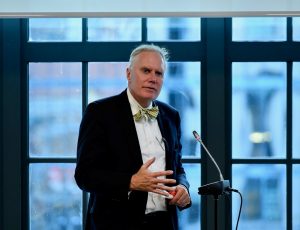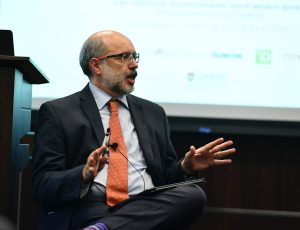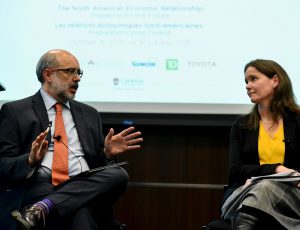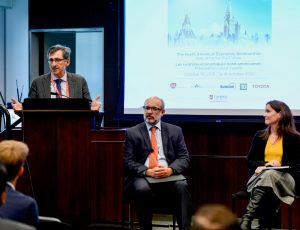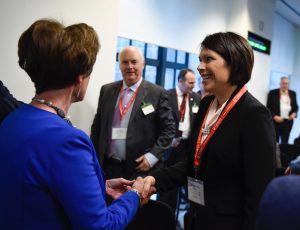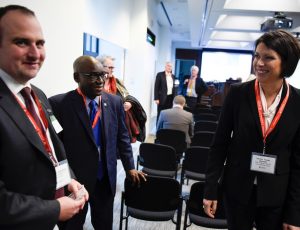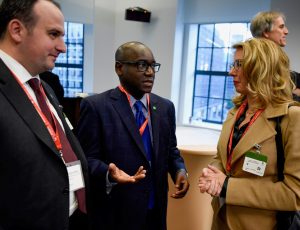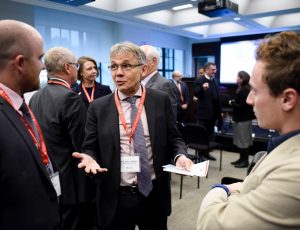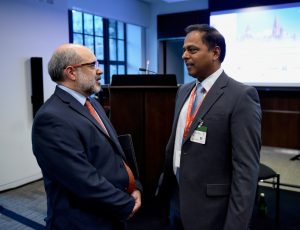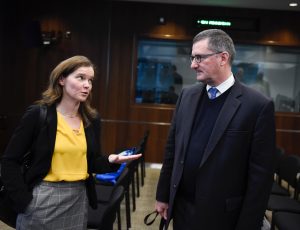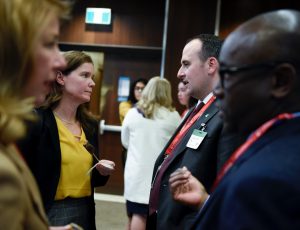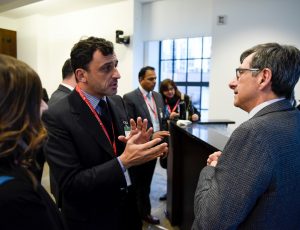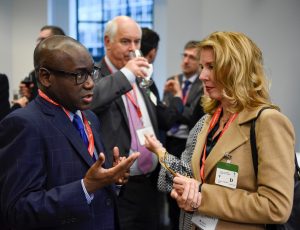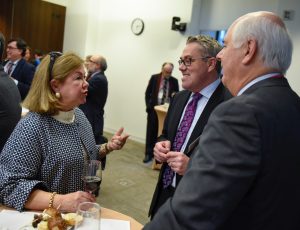In order to continue growing its economy, Canada will have to compete smarter and more boldly against what will be a younger and stronger Mexico and the United States.
That was a key take-away from a panel examining the future of the North American relationship at an event organized by the Carleton Initiative for Parliamentary and Diplomatic Engagement and attended by Members of Parliament, Ambassadors and other members of the diplomatic community, senior government officials, political staffers, and Carleton faculty and students.
Meredith Lilly, Associate Professor and Simon Reisman Chair in International Affairs, Carleton University and former Foreign Affairs and International Trade Advisor to Prime Minister Harper opened the panel with a primer on the North American relationship. She warned that Canada must continue to expand its trade if it expects to maintain the privileged place it has enjoyed in the last decades.
Christine McDaniel, Senior Research Fellow, American Economy and Globalization, Mercatus Centre, George Mason University and former Deputy Assistant Secretary at the Treasury Department and senior trade economist in the White House Council of Economic Advisers, suggested that there were no particular winners in the newly-negotiated USMCA agreement but that the biggest gain was restoring investor confidence and solidifying North American trade.
Hugo Perezcano Diaz, Deputy Director, International Economic Law, CIGI and former lead counsel for Mexico in investor-state dispute settlements, called the USMCA neither a win for Mexican autoworkers nor an improvement to NAFTA. He hoped it would ease the regulatory burden that has led enterprises to hire more lawyers and consultants than engineers.
The panel was moderated by Fen Osler Hampson, Chancellor’s Professor, Carleton University and Distinguished Fellow & Director of Global Security & Politics, CIGI
Dr. André Plourde, Dean of the Faculty of Public Affairs, thanked the panel and offered closing remarks, noting his frustration that trade negotiations are not centred around concerns related to consumers but ways to codify non-tariff barriers.
Please click on the following for:
- Discussion summary prepared by Claire Crawford, Master’s candidate, Norman Paterson School of International Affairs, Carleton University
- Program

